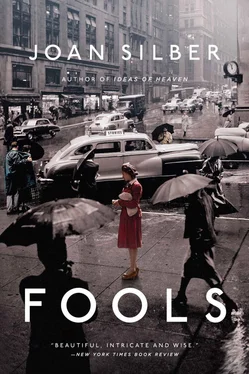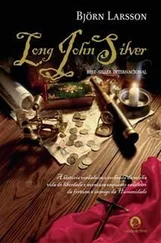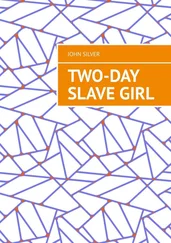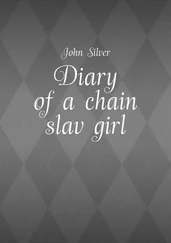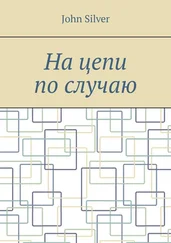And he did fine as a backpacker, good at guessing what was going on, dazzled by newness, skilled at scrimping. He made friends easily, he picked up bits of languages, he was only sick a few times and never robbed. He liked just about all of it — Thailand, Malaysia, Sumatra, Sri Lanka — until he got to India.
The thing about India was that people did not ever, ever leave you alone. Not just the poor women holding their babies out, the begging toddlers pointing to their mouths, the old men without shoes or shirts or much flesh on their bodies, whom he could hardly blame for wanting to shake him down for what they could, and not just the hustlers of DVDs or instant tailoring or very-nice-girls or bargain rubies, who had to make a living. But also the schoolboys who entertained themselves imitating him to each other, the brightly bossy ones who couldn’t let him read a map without telling him what he really had to see.
As a New Yorker, Rudy was already a little too used to being hard-hearted, which at least made him unafraid of misery. He did give change if he thought he could avoid being swarmed. But every day, just when he thought he understood the place, he was duped or refuted or told silly lies. How did people live here? He decided that religion — apparent everywhere, in the ornate and amazing temples, in the marks of vermilion or ash or sandalwood paste on people’s faces — was the really interesting thing in India. On the advice of a couple at his hostel, he took a long, hot bus ride out of Mumbai to the city of Nasik, where the sacred Godavari River flowed. He arrived in the hottest part of the day, and he saw right away his mistake about religion here — not peaceful at all! not quiet! The closer he got to the river, the more the roadways swarmed with visitors, with wandering sadhus with painted faces and chests, with the wrecked and injured and alarming. At the river, women beat bright silk laundry against the rocks, boys goofed around in rented rowboats, and pilgrims waded into the stream. Sellers of bracelets, fried foods, incense, and postcards of Hindu gods leaped forward at the sight of Rudy.
He was making his way from this scene, up a narrow path on the bank, when a beggar with a bowl on a chain around his neck stopped him. The man, whose face looked strangely dried, with patches of lighter skin across the cheeks and neck, held out his curled hands, to show that some fingers were rounded nubs, missing the bits past the knuckle. Oh, God, he’s a leper, Rudy thought. Is that what he is? When he got out his wallet — he was wildly relieved he had a small bill on him, not too big to give — the man gazed in rheum-eyed thanks.
At the time, Rudy only wanted to get out of Nasik as soon as he could. He left the next day for Pune, where he took up with a pretty and fearless Englishwoman, who led them to the beaches of Goa, where he stayed for a month. But Nasik marked the beginning of chewing over a problem. He knew he wasn’t equal to doing anything very pure. On the other hand, there were lepers.
He certainly had not expected to stay in India; he didn’t even like it. But in Chennai he met this sweet, hilarious girl (Berry, a redhead from Miami), who was volunteering in a school for street kids, and she enlisted him in getting the boys to run off some of their energy in the tiny yard. This was not so hard, once he got his iPod hooked up with speakers and blasted some music for them to move to. He gave them his favorite tunes and he downloaded some Tamil pop and Bollywood numbers in Hindi. The boys had their own moves (signs of the ancient roots of hip-hop) and worked up some giddy routines.
It was no big deal to video it and put it on the school’s website. Rudy was home, back in New York, by the time it got posted — Berry wrote and said everyone noticed that donations were doubling and tripling, millions of rupees were pouring in. She was kidding, but he half believed her because it was so cool.
Back in New York (what an expensive city), he fudged a little on a job application and cited his fund-raising experience in Chennai. And so it went; he was hired by an excellent liberal arts college (his druggiest friend had gone there) to join the development staff. He turned out to be so good at inspiring donors to cough up cash that he then made a lateral move to a bigger college. And now, a decade after he’d gotten into it, he’d taken an absurd pay cut to be the director of understaffed Development for Hansen’s Hope, a network of care centers and residences and schools in South Asia for people with Hansen’s disease, aka leprosy.
“And it’s not that contagious,” he always had to say. Hope was in the name so people didn’t shriek and toss the appeals away at once. You had to emphasize the need but not disgust or horrify anyone, always a fine line. There had been a cure for more than two decades, for Christ’s sake. Rudy selected photos with interesting faces, not just ravaged figures, for the newsletter, which he mostly wrote. He was new at this, and it was much more of a challenge than getting college alums to send checks to their dear old distinguished schools. You’d think people would want to rain gold on the truly afflicted, but no, pas du tout .
HH had been started forty-odd years before by a rich kid back from the Peace Corps, and the board was still mostly friends of his family. Not young, but boards weren’t. Rudy got along best with the women and wives — well, that was his nature — and Deedee, one of his favorites, had brought a friend, a new “prospect,” to this year’s garden party gala in Central Park. Donor prospects were few and far between these days. Quite a handsome woman still, with dark hair pulled back in a bun, pale skin, red lips, the beaded silk suit a little dressy for a garden party. But she was French, they were a dressy people.
So now Rudy was trying to talk her up, without, of course, seeming to do more than bring her a mini-samosa and some punch. Was she from Paris? He had been to Paris. What a city.
She sort of laughed at him. “You will say to me about the croissants you ate. Maybe I like New York better. Do you think I am a traitor?”
Not answering that one. “What do you like about us?” he said.
“People are not acting superior, maybe they think they are but they don’t say it.”
“But we’re not as good-looking as the French,” he said.
She gave him a knowing smile. “If I say we have beautiful genes,” she said, “I will be acting superior.”
Liliane could not remember why she’d agreed to come to this garden party with Deedee. It was true she’d always liked parties, but less and less these days. She hoped she was past the need to parade herself (who wants to be a ridiculous seventy-one-year-old?) and the effort it took to enter conversations around her in English kept making her think, Why am I listening to some idiot who knows less than I do?
If you saw through everything, it made it hard to figure out what to do with yourself. This was the dilemma Liliane faced on a daily basis. It wasn’t much of a real problem, she knew, compared, for instance, to the constituency served by Hansen’s Hope. But it drove her to do things she didn’t expect, spend money she didn’t have. She had known herself better when she was young.
Her son, Emile, always told her how cynical she was. She was never cynical about him , but he knew her opinions on everything else. They were close, in their sometimes combative way. He was in his forties now and lived in the countryside in Limousin. When they Skyped, his ruddy bearded face on the computer was always startling, always dear.
He hadn’t had the best childhood either. She’d had him on her own — the pregnancy was an oversight she ignored too long — and it was before the government made such a big point of helping you. She got by on a part-time job guiding English-speaking tourists (bad pay) and on the occasional generosity of boyfriends. Her girlfriends served as babysitters and were highly unreliable. The early years were filled with screaming desperation, and her son remembered some of it. It was her very good luck that when Emile was twelve, she took up with the sheikh. He was not a sheikh at all — that was their own nickname for him, since his family was from Morocco and his name happened to be Ahmed. He’d been born in Paris, in fact, and he owned a nightclub on the edge of Montmartre, which was where Liliane met him. He hired all kinds of musicians, happier with newness than most people are, and it was a cozy, lively spot, moving in and out of prosperity as trends swirled around it. He and Liliane never married (why get into religious tangles?), but they lived together without undue strife for many years. They lived in Liliane’s cluttered apartment, and he was out working much of the time, waiting for beverage deliveries or meeting promoters in cafés. She was under the impression that quite a lot of his profits went to his mother, he was the only son, but when Liliane complained of this, they had their one bitter quarrel, and she kept her outrage down after that. Mostly he was a sweet-tempered man, playful, expansive, genuinely clever, good with Emile. He brought her quite beautiful presents — he was a sucker for anything with a lily in its design — and he kept up his admiring patter, his droll, flirtatious praise, in the same rhythms for two decades.
Читать дальше
